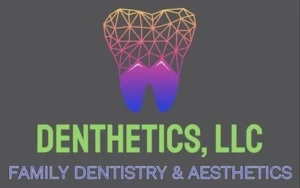Sleep Apnea
Sleep Apnea
Sleep apnea is a rather common condition that involves interrupted breathing patterns during an individual’s sleep. When untreated, sleep apnea can result in repeated stops in breathing during sleep, preventing the brain and the rest of the body from getting enough sleep.
During obstructive sleep apnea, the tongue or soft tissue slides back and pushes against the back of the throat. This movement blocks the individual’s airway, and their airflow stops for a period. When the oxygen level in the brain becomes too low, the sleeper partially awakens, the obstruction in the throat clears, and the airflow starts again, usually with a loud gasp.
Those with obstructive sleep apnea can suffer from excessive daytime sleepiness, depression, loss of concentration, diabetes, high blood pressure, and obesity. Additionally, repeated cycles of lowered oxygen levels may lead to severe cardiovascular problem.
Types of Sleep Apnea:
Obstructive Sleep Apnea (OSA)
OSA is the most common form of sleep apnea. Obstructive sleep apnea is when the tongue, soft tissue, or throat tissues relax and block your airways while you sleep.
Central Sleep Apnea (CSA)
In addition to obstructive sleep apnea, people may suffer from central sleep apnea. Central sleep apnea is when your brain can’t control the muscles responsible for normal respiration when you sleep.
Complex “Mixed” Sleep Apnea
Complex sleep apnea has a combination of obstructive sleep apnea and central sleep apnea factors. This form of sleep apnea is also known as mixed or treatment-emergent central sleep apnea.
Treatment Options for Sleep Apnea
Airway Dentistry – Our Process
Whether you have been diagnosed with sleep apnea or have not, our Kenosha dentist, Dr. Felicia Mata-Stein can help.
First, Dr. Mata-Stein will perform a sleep apnea evaluation to determines the symptoms you experience. During an evaluation, our sleep apnea specialist, screens for any signs and provide you with a treatment plan which includes consultations with our partner physicians if needed.
In addition to gathering your detailed medical history, we assess the anatomic relationships in your maxillofacial region. We capture a 3D image using our cone beam technology to help screen and educate regarding your airway and any abnormalities and restrictions inflow.
Next, we order a home sleep study for you in the comfort of your home, allowing you to use our simple sleep monitoring equipment to record all pertinent data.
Finally, we route your results to our partner physicians to interpret, score, and diagnose your sleep apnea and determine your candidacy for an oral appliance.
While several treatment options are available for sleep apnea, including CPAP, Dr. Mata-Stein will begin by offering oral appliances that improve jaw position to address snoring and mild sleep apnea.
Oral Appliance Treatment
As your sleep apnea dentists, we proudly offer you the best custom-designed oral appliances to treat snoring and your mild to moderate OSA. Oral appliance therapy is considered a gold standard in sleep apnea therapy for many who cannot tolerate CPAP therapy and surgery. Our custom-fabricated two-piece mouthpiece is designed to prevent apnea by keeping the upper airway open. It shifts the lower jaw gently forward, which opens the airway and prevents the base of the tongue from collapsing backward and blocking the airway.
Book An Appointment Today!
Contact our Kenosha sleep apnea dentist at (262) 652-9083 if you are experiencing sleep apnea symptoms. With over 25 years of experience, Dr. Mata-Stein cares for patients with sleep apnea from Kenosha, Pleasant Prairie, Sturtevant, WI and many surrounding areas. You may also schedule at our downtown Loop Chicago dental office if you are experiencing signs and symptoms.
